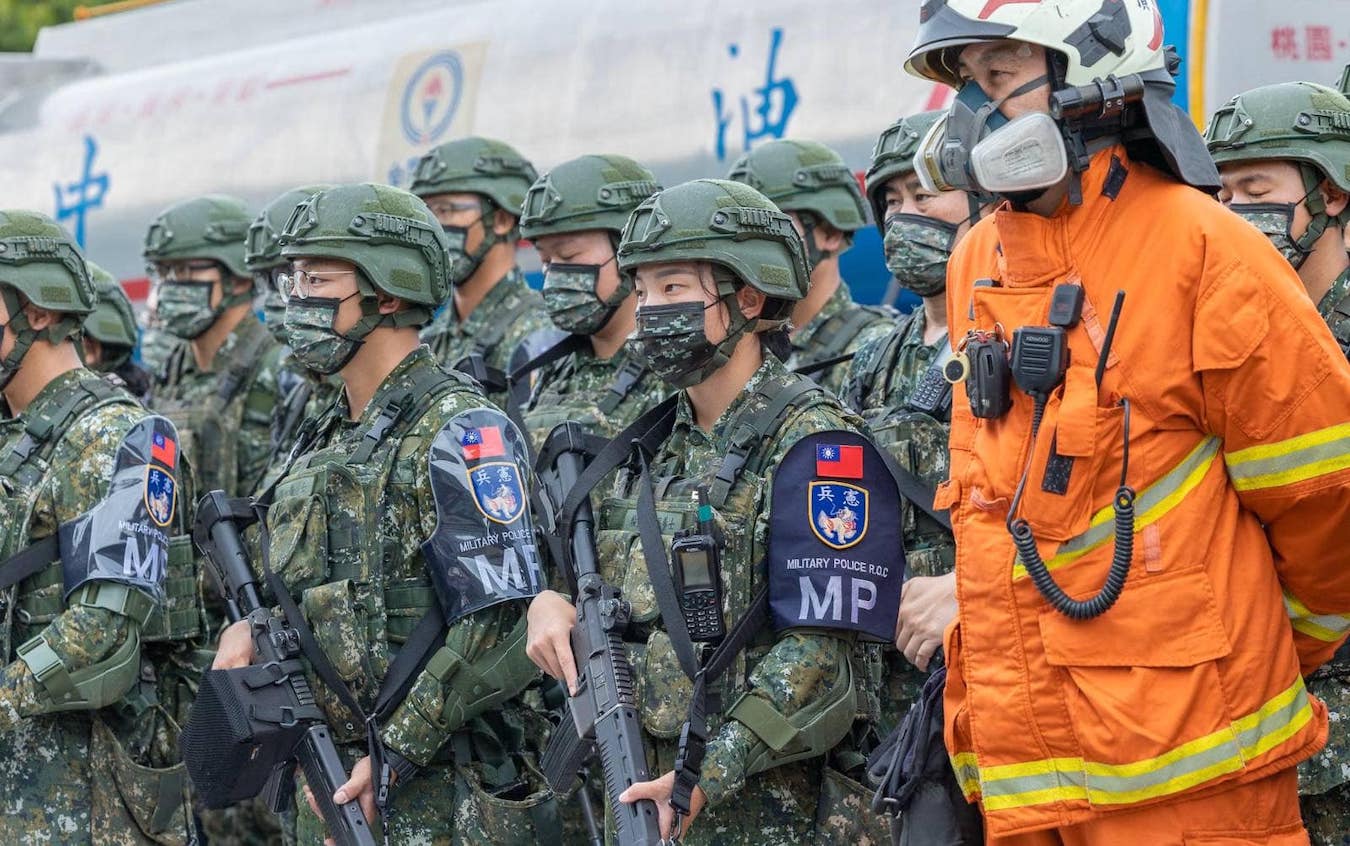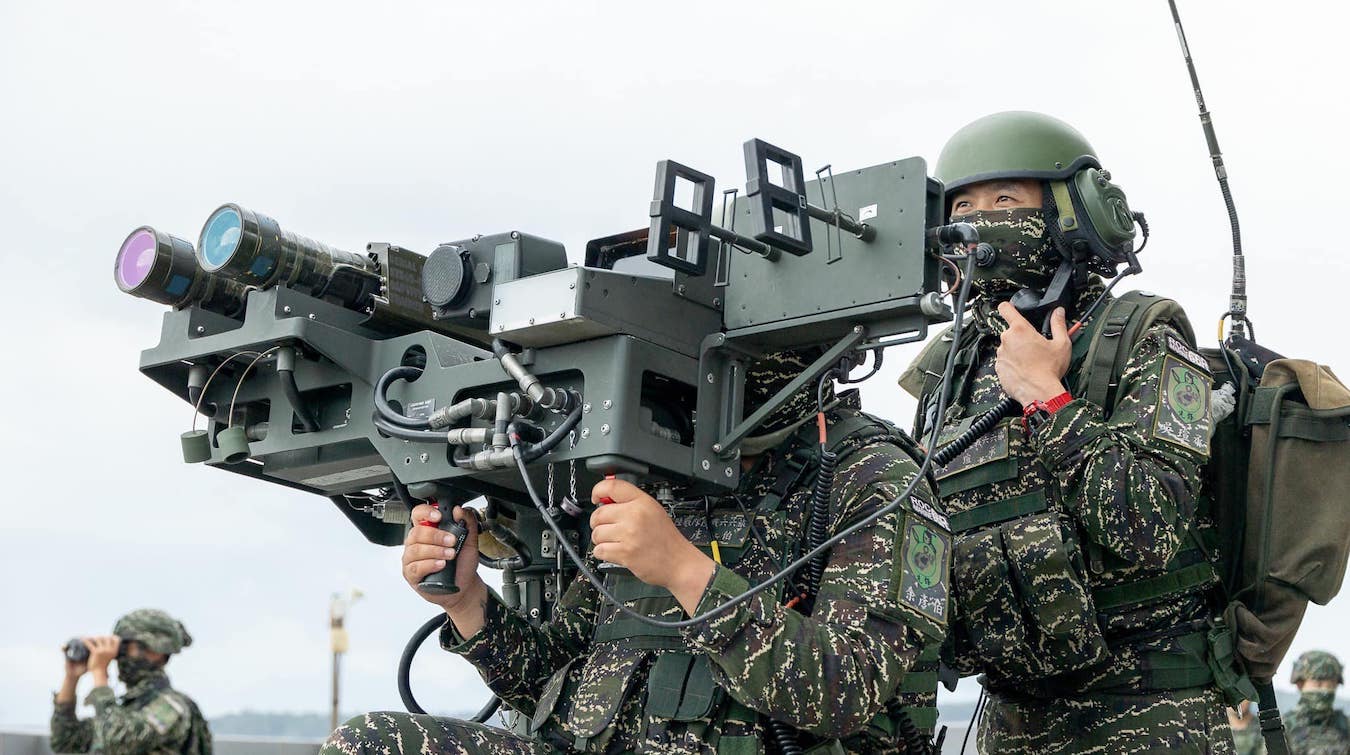by Brian Hioe
語言:
English
Photo Credit: Tsai Ing-wen/Facebook
A RECENT INCIDENT in Keelung sets the prototype for what is sure to be a new arena of contestation in local politics.
In particular, in the lead-up to the Han Kuang exercises, an explosion took place at an ammunition depot in Keelung. The explosion injured nine soldiers, with two soldiers facing serious injuries that required amputations. The explosion itself had nothing to do with the exercises, but given the similar timeframe, may be publicly perceived as related.
After the incident, local pan-Blue politicians began calling for the relocation of the ammunition dump, suggesting that it be moved to Wanli District in New Taipei or Yilan County. The idea is most associated with Keelung city councilor Lu Mei-ling.
 Photo credit: Tsai Ing-wen/Facebook
Photo credit: Tsai Ing-wen/Facebook
A viral incident, however, took place when Lu was confronted by a local resident who was a veteran about the idea. The veteran in question, businessman Lai Wen-chung, defended the depot as necessary to defend against a Chinese invasion and stated that moving the depot elsewhere would, in fact, be further dangerous for Taiwan. Lai cited that the ammunition depot had been in Taiwan since the time of Chiang Kai-shek, while allowing that explosions were potentially a risk, and citing his experience in the military as attesting to that.
In the course of the encounter, Lu accused Lai of seeking to provoke China, drawing comparisons to the US and Ukraine. Drawing on international discourse, the pan-Blue camp has increasingly alleged that the invasion of Ukraine by Russia took place because Ukraine became too close to the US and NATO, suggesting that Taiwan could face a similar outcome in provoking a Chinese invasion if it gets too close to the US.
This is an ironic argument for the KMT, which after all could only maintain political power in Taiwan for decades because of US backing. Nevertheless, the KMT has increasingly sought to lean into a political narrative that casts doubt on the US, at a time of strengthening relations between the US and the Tsai administration. One notes how the KMT is drawing on international conspiracy-mongering about the war in Ukraine as part of this, inclusive of narratives amplified by Chinese and Russian disinformation.
By contrast, Lai stated that it was Lu who was allowing for Chinese threats against China by encouraging complacency.
As part of its embrace of US-skeptic discourse, the pan-Blue camp has increasingly sought to cast doubt on US weapons sales toward Taiwan, suggesting that the US is seeking to foist dangerous, unwanted arms onto Taiwan. With the sale of Volcano landmine systems, it was suggested that this would lead to Taiwan being cluttered with land mines, similar to Cambodia, even if Taiwan would only be purchasing anti-tank landmines that would be visible with the naked eye and could not be triggered by an individual, rather than anti-personnel landmines.
One has seen similarly with regards to proposals for the US to store munitions in Taiwan, to allow for a quicker response to a Chinese invasion. The pan-Blue camp has sought to attack the idea by suggesting that the US would simply use Taiwan as an arms munition stockpile, which could prove dangerous to Taiwan.
 Photo credit: Tsai Ing-wen/Facebook
Photo credit: Tsai Ing-wen/Facebook
Perhaps as seen with the controversy in Keelung, one will see pan-Blue politicians seek to combine NIMBY discourse with US-skeptic narratives. This would not be surprising, as a way for local pan-Blue politicians to synthesize local and national politics in a way that leverages on the KMT’s traditional claim to be the only political party in Taiwan able to maintain stable cross-strait relations with China, as a justification for why it should maintain political power. This may take place in areas with significant military facilities, even if historically the KMT has benefited from the support of military veterans–this being the case, one wonders if this is an opportunity for the pan-Green camp to instead win over the support of veterans.
As troop casualties or injuries may occur as a result of drilling in preparation for invasion scenarios, which have been scaled up under the Tsai administration in response to the growing military threat from China, it is not impossible that the KMT will seek to cast doubt on this as well. After all, it was not too long ago that KMT presidential candidate Hou You-yi suggested that he would undo the Tsai administration’s lengthening of the military draft back to one month. The KMT may suggest that measures to prepare for an invasion are unnecessary and, in fact, provocative of China, while amplifying news of casualties or deaths in order to reinforce this narrative.

